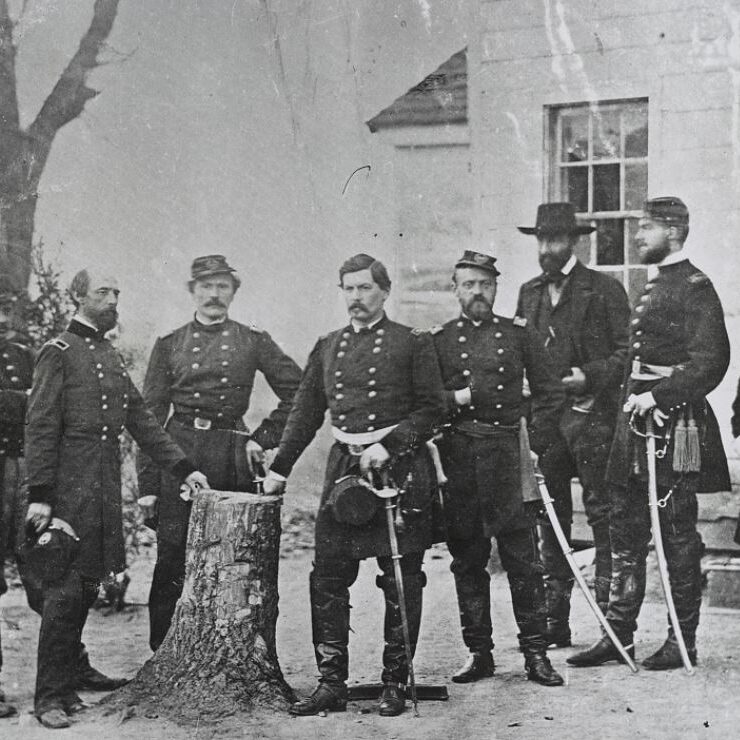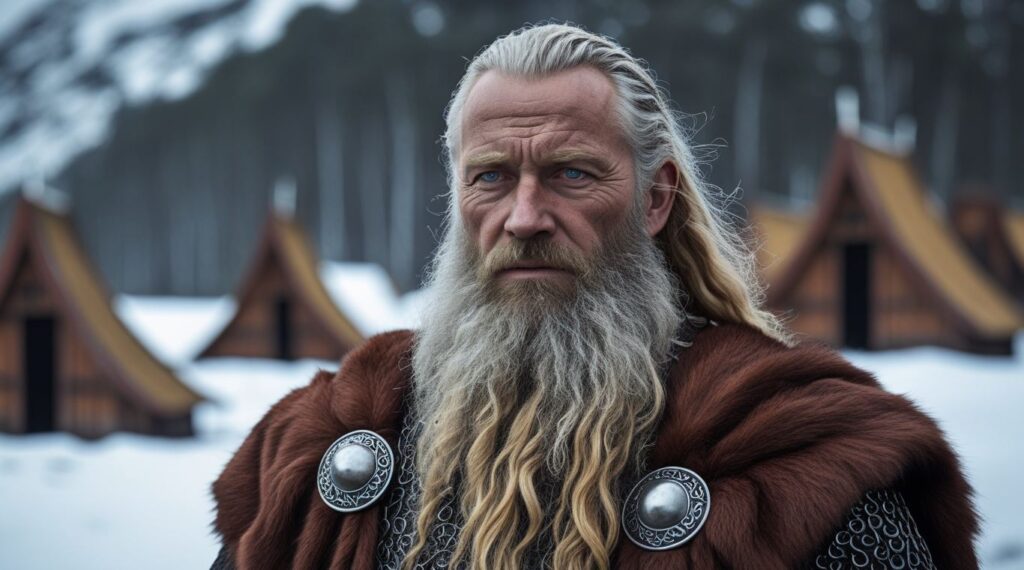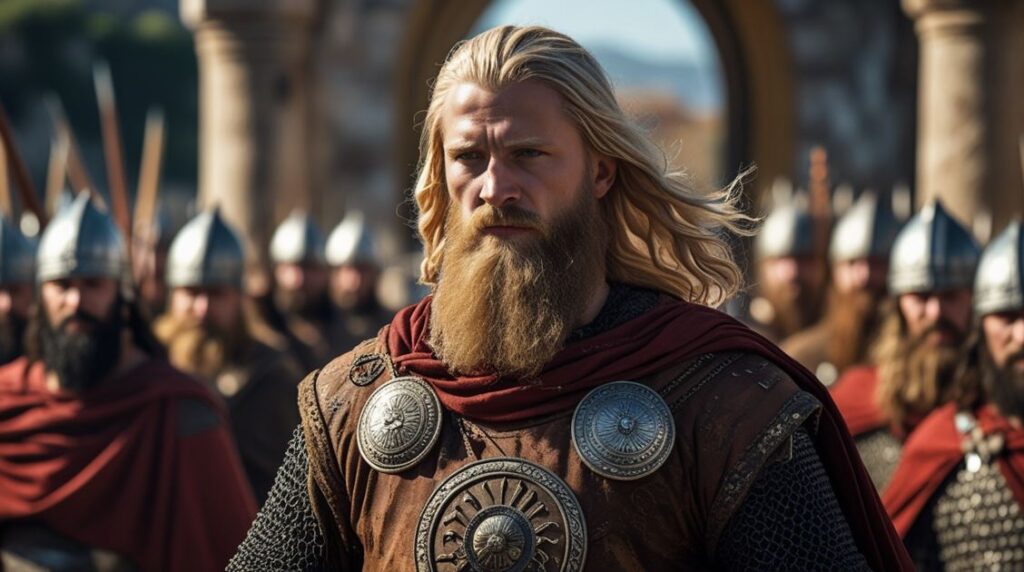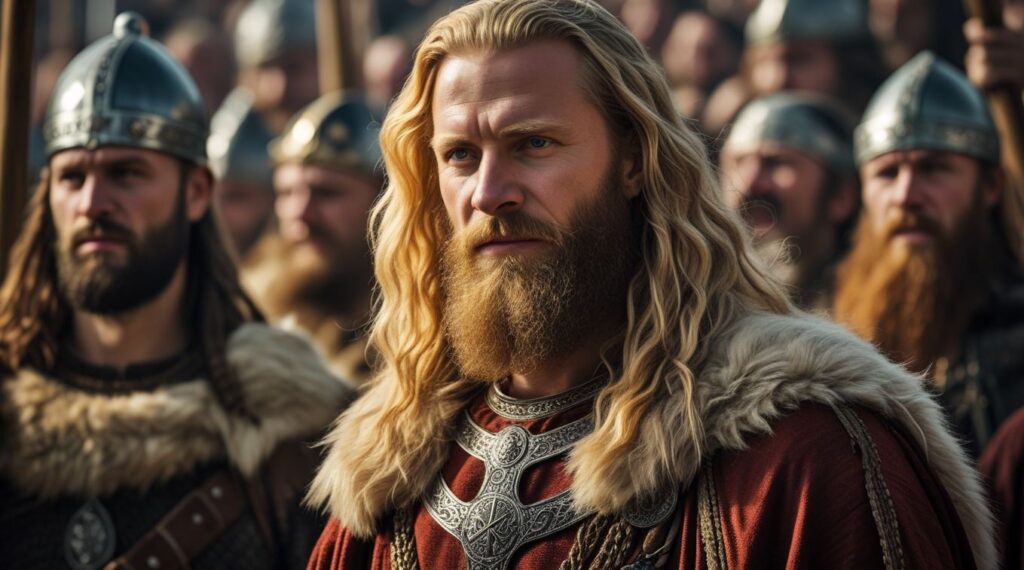General George B. McClellan, the former commander of the Army of the Potomac, remains one of the most fascinating and polarizing figures of the American Civil War.
While his military record was mixed, with both successes and failures, he enjoyed an almost cult-like devotion from his soldiers and many Northern civilians.
This article explores the reasons behind McClellan’s popularity, his contributions to the war effort, and his enduring legacy.
1. General McClellan: A Man of the People
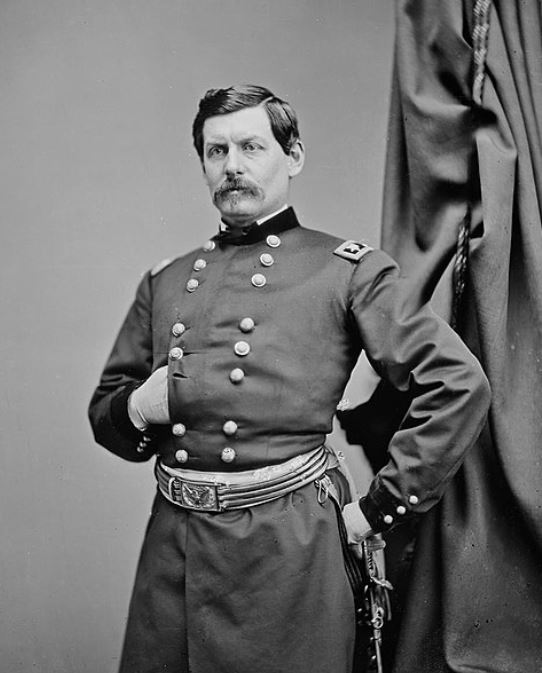
One of the primary reasons for General McClellan’s immense popularity among his troops was his ability to connect with the common soldier in a way that was rare for officers of his time.
Unlike many of his West Point-trained contemporaries, who often carried an air of aristocratic aloofness, McClellan had a more approachable manner.
He treated the men under his command with genuine respect and concern for their well-being, endearing himself to them as a caring and compassionate leader.
McClellan made a conscious and deliberate effort to learn about the backgrounds, personal stories, and individual circumstances of the soldiers in his ranks.
He would frequently mingle with the troops, engaging them in conversation and showing a sincere interest in their lives beyond the battlefield. This personal touch, combined with his charismatic personality and dashing physical appearance, made McClellan seem almost larger than life in the eyes of his adoring soldiers.
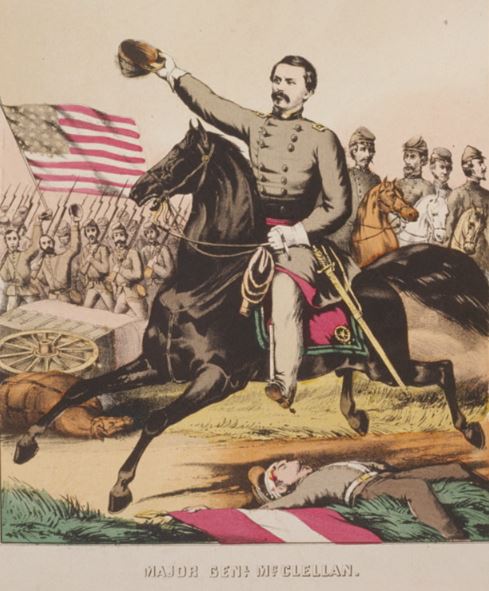
His men affectionately referred to him as “The Young Napoleon,” drawing comparisons between McClellan and the legendary French military leader. This nickname not only reflected his youthful vigor and commanding presence but also contributed to the cult of personality that surrounded him.
Despite the controversies and setbacks that would later mar his military career, McClellan’s reputation as a “man of the people” endured long after the war.
His soldiers remained fiercely loyal to him, crediting their beloved commander with treating them as human beings rather than mere cannon fodder. This quality was rare among generals of the time.
2. General McClellan was a Gifted Organizer and Reformer
While General McClellan’s performance on the battlefield has been the subject of much debate, but his contributions behind the scenes were significant.
He was instrumental in transforming the Union’s disorganized forces into a formidable fighting machine, instilling discipline, and improving logistics and supply lines.
General McClellan Trained and Drilled the Army
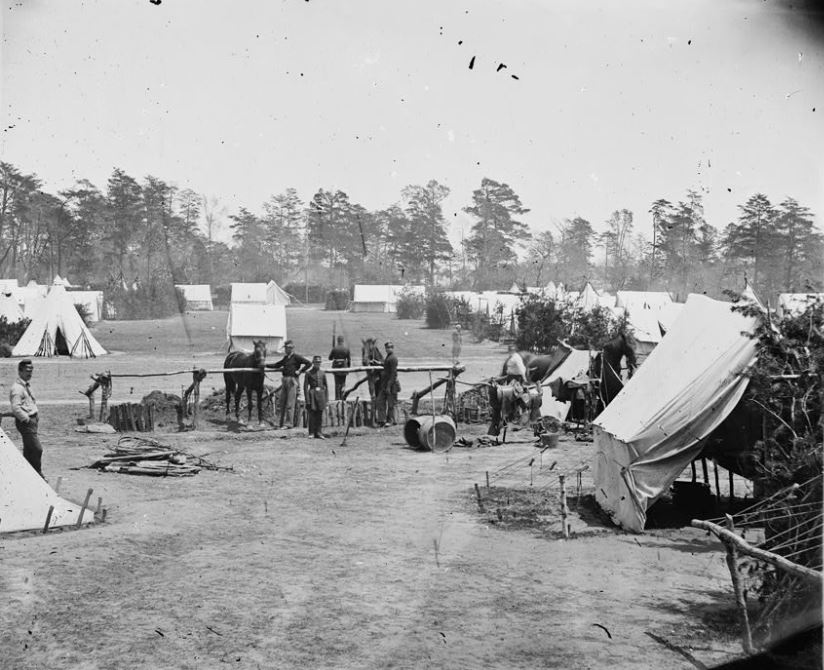
Upon taking command of the Army of the Potomac, McClellan found a demoralized and ill-equipped force. He immediately set about implementing rigorous training regimens, drilling his troops relentlessly to improve their discipline and combat readiness.
This focus on training and preparation laid the groundwork for future success on the battlefield.
General McClellan Revamped Logistics and Supply Lines
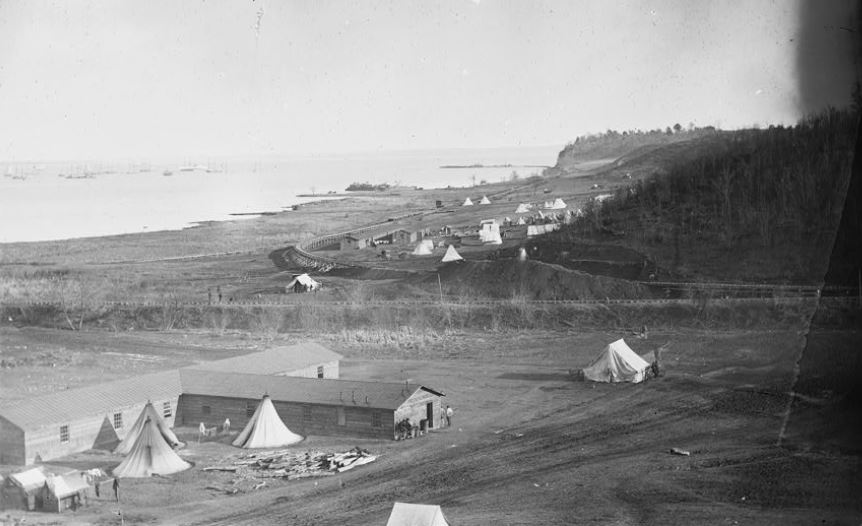
One of McClellan’s most significant contributions to the Union war effort was his recognition of the vital importance of effective logistics and robust supply chains – areas that had been woefully neglected in the early, chaotic stages of the Civil War.
With his keen organizational mind and attention to detail, McClellan dedicated himself to revamping and streamlining the systems that kept the Army of the Potomac supplied and mobile.
He worked tirelessly to overhaul the transportation networks responsible for moving troops, equipment, ammunition, food, and other essential supplies.
McClellan understood that modern warfare demanded efficient logistics to sustain campaigns over long distances and extended periods.
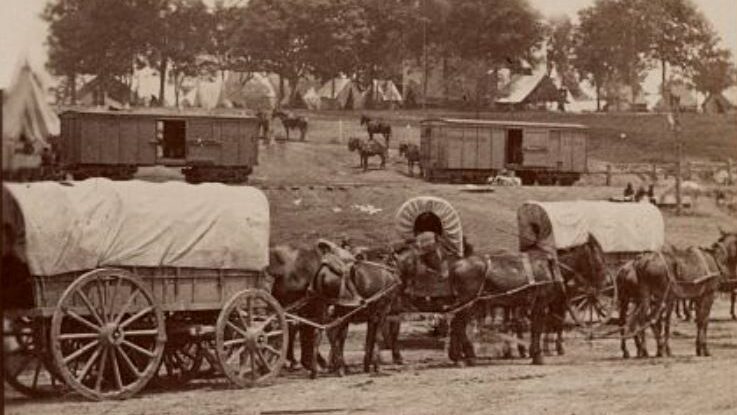
Under his leadership, railroads and waterways were better utilized, new roads were constructed, and wagon trains were reorganized for maximum efficiency.
Moreover, McClellan recognized the importance of maintaining adequate stockpiles and depots, ensuring that his forces would not be caught undersupplied or cut off from their logistical lifelines.
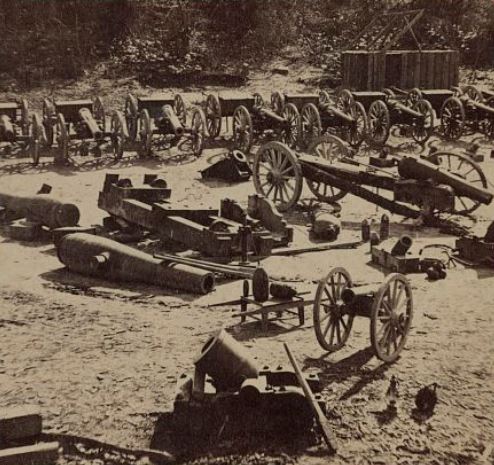
He implemented rigorous inventory management practices and established a network of supply depots strategically positioned to support his army’s movements and operations.
This focus on logistics and supply chains was a departure from the ad hoc approach that had characterized the Union’s early war efforts.
McClellan’s reforms in this area helped transform the Army of the Potomac into a more modern, mobile, and sustainable fighting force, better equipped to undertake extended campaigns and maneuvers.
Cultivating Professionalism
Beyond addressing the practical needs of training, logistics, and organization, McClellan’s most significant contribution may have been cultivating a sense of professionalism within the Army of the Potomac.
He recognized that morale, unit cohesion, and a shared sense of purpose were essential ingredients for an effective fighting force. Through his leadership and personal interactions with the troops, McClellan fostered a strong identity and pride among his soldiers.
He imbued them with the belief that they were part of an elite, disciplined, and capable army – a stark contrast from the ragtag militias of the war’s early days.
McClellan’s efforts to instill professionalism extended to maintaining high standards of conduct, appearance, and bearing. This approach cultivated a bond of trust and mutual respect between the men and their commander, creating a powerful sense of camaraderie that would sustain them through the challenging campaigns that lay ahead.
McClellan Built the Framework for Union Victory
Though remembered more for his shortcomings on the battlefield, George B. McClellan’s true legacy lies in the groundwork he laid for the Army of the Potomac’s ultimate success.
His relentless training transformed volunteers into a professional force, imbuing them with discipline and combat proficiency.
McClellan’s logistical reforms streamlined supply lines, ensuring operational sustainability.
Crucially, he cultivated powerful esprit de corps, fostering pride, identity, and resilience within his ranks.
While unable to deliver a decisive blow himself, McClellan fortified the army’s core – steeling it for the grueling campaigns ahead. His successors like Grant and Sherman built upon this foundation, to wage the offensives that bankrupted Confederate resistance.
3. The Peninsula Campaign: A Missed Opportunity?
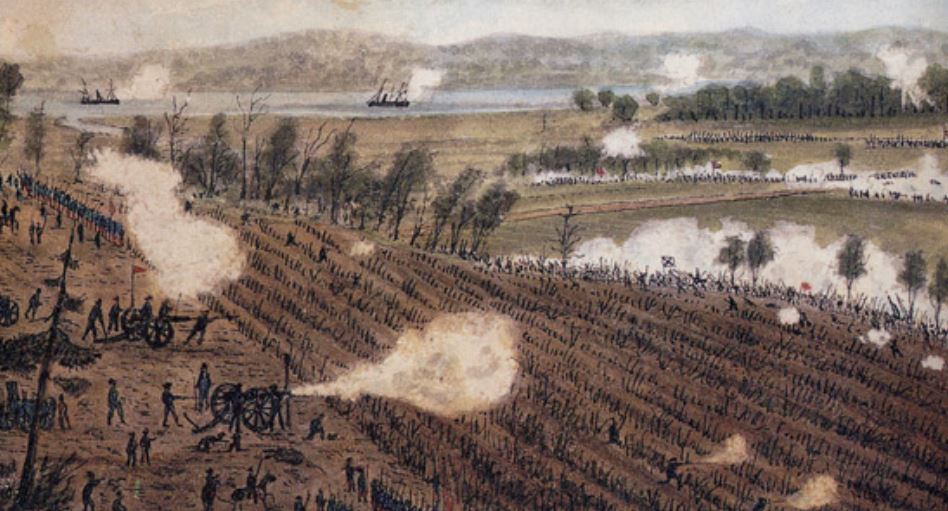
McClellan’s most significant and ambitious military operation during the Civil War was the Peninsula Campaign of 1862.
It was a complex strategy to advance up the Virginia Peninsula, outflank the Confederate defenses around Richmond, and capture the enemy capital – a potential knockout blow against the Confederacy.
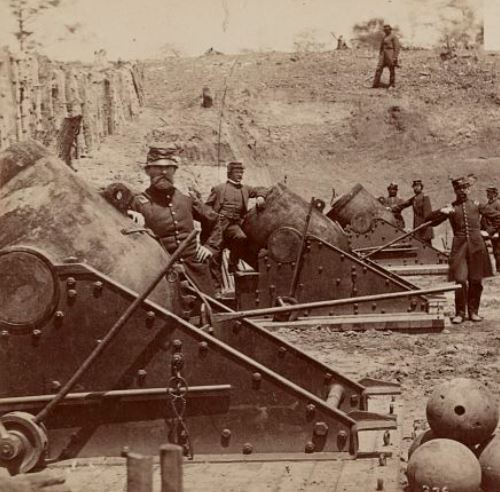
While initially showing great promise, with hard-fought victories at Yorktown and Williamsburg that brought McClellan’s forces to the outskirts of Richmond, the Peninsula Campaign ultimately stalled and failed to achieve its primary objective of seizing the Confederate seat of power.
Early Successes and Growing Confidence
In the opening stages, McClellan’s meticulous planning and methodical, cautious approach paid dividends.
His Army of the Potomac, buoyed by successes like the siege of Yorktown, steadily advanced up the Peninsula, overcoming each defensive line in its path. With Richmond seemingly within their grasp, confidence swelled that this offensive could deal a decisive defeat to the Confederates and potentially end the war.
McClellan’s early victories showcased his skills in logistics, preparation, and set-piece battle tactics.
Criticism and Calls for Aggressive Action
As the Peninsula Campaign dragged on through May and June 1862, McClellan’s cautious nature and apparent reluctance to commit his full forces drew increasingly vociferous criticism.
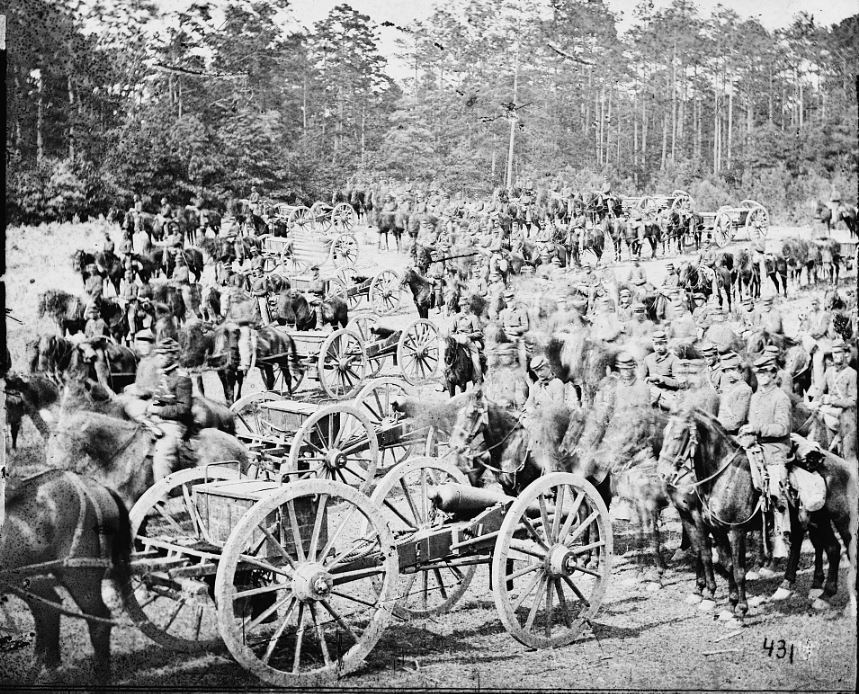
President Lincoln and many in his administration urged the general to strike boldly at Richmond while the opportunity remained.
At the Battle of Seven Pines: Though a two-day battle with heavy fighting, McClellan failed to capitalize on initial Union successes. He halted the advance and missed the opportunity to inflict a more significant defeat on the already weakened Confederate forces under Johnston.
Many viewed McClellan’s hesitation to attack the undermanned Confederate forces as squandering the Union’s numerical and positional advantages. Public and political pressure mounted for more aggressive action to achieve total victory before the Confederates could regroup and fortify their defenses around the capital.
The Aftermath and Removal from Command
Ultimately, despite inching to within just miles of Richmond, McClellan’s offensive ground to a stalemate in the face of reinforced Confederate lines. In a stunning reversal, the Union forces were forced to retreat and abandon the Peninsula Campaign altogether by July 1862.
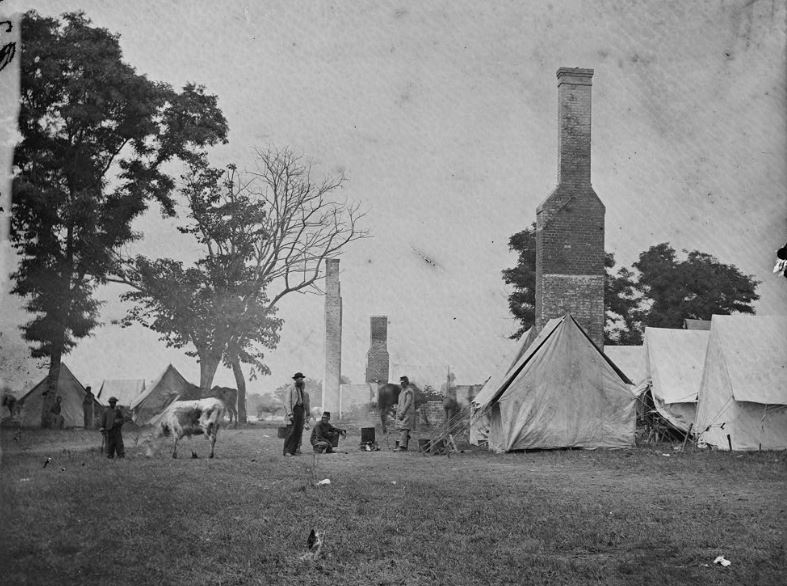
McClellan’s failure to capture Richmond, combined with his increasingly strained relationship and open defiance of President Lincoln’s demands for action, led to his relief from command that November. The Peninsula Campaign represented both the peak of McClellan’s influence and a devastating missed opportunity that arguably prolonged the war.
His inability to deliver the decisive, war-shortening blow at Richmond cemented a perception of excessive caution that overshadowed his genuine talents in organization and defensive warfare. Though achieving incremental gains, McClellan’s overcaution allowed fleeting chances for total victory to slip away, souring military and civilian leadership on his continued role as commander.
4. The Rise and Fall of McClellan’s Maryland Campaign
With panic gripping the North at Robert E. Lee’s bold incursion across the Potomac and the Confederate invasion of Maryland in September 1862, a desperate Lincoln had little choice but to once again entrust the Army of the Potomac to George B. McClellan. This was despite the administration’s waning faith in the general following his ill-fated Peninsula Campaign earlier that year.
The Maryland Campaign of 1862 was meant to be George B. McClellan’s crowning achievement – the decisive blow that would cement his reputation as the Union’s preeminent military leader. It was his opportunity to redeem himself after his ill-fated Peninsula Campaign earlier that year.
What followed was a dramatic sequence of events that witnessed both the astounding peak and ignominious nadir of “McClellanmania.”
The Rising Hopes and Initial Successes
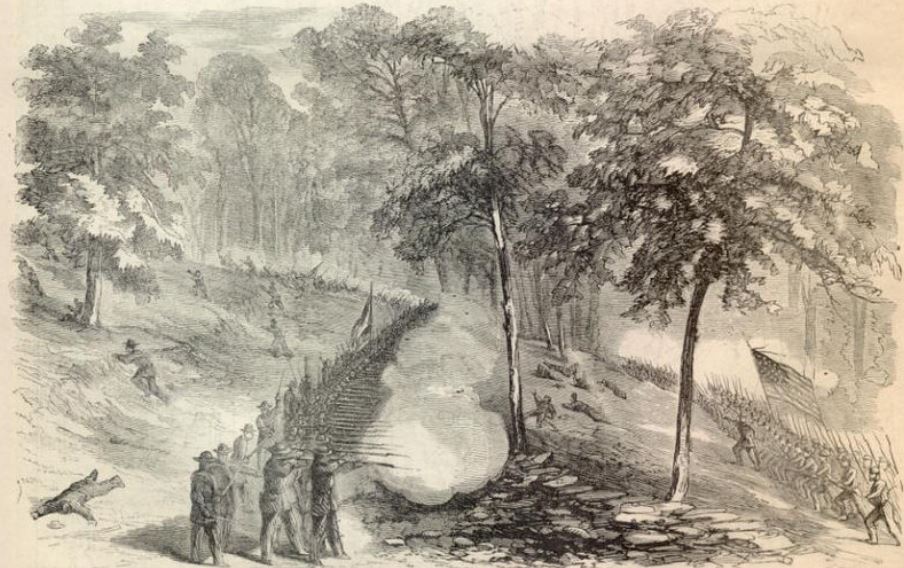
As Lee’s Army of Northern Virginia poured into Maryland, panic gripped the North at this first Confederate invasion across the border states.
All eyes turned to McClellan’s Army of the Potomac to protect the nation’s capital and repel the rebel incursion. McClellan responded with alacrity, setting his forces in pursuit of the emboldened but severely outnumbered Lee.
An incredible stroke of luck further boosted Union prospects when soldiers discovered a copy of Lee’s detailed campaign orders – Special Order 191 – wrapped around some cigars. This intelligence coup revealed the Confederates’ dispersed dispositions, allowing McClellan to potentially catch them fragmented and “in their own trap” as he gleefully proclaimed.
As the blue-clad columns passed through Frederick, Maryland on September 12th, McClellan rode at their head, cutting a heroic figure.
Jubilant crowds showered him with adulation. Hopes soared that the Young Napoleon had finally received the opportunity to crush the rebels decisively.
Those hopes were further kindled at the Battle of South Mountain on September 14th. After heavy fighting, McClellan’s forces wrested control of the crucial mountain passes from Lee’s outnumbered defenders.
With the way now clear into enemy territory, many anticipated an overwhelming Union onslaught to soon follow.
The Bloody Stalemate at Antietam
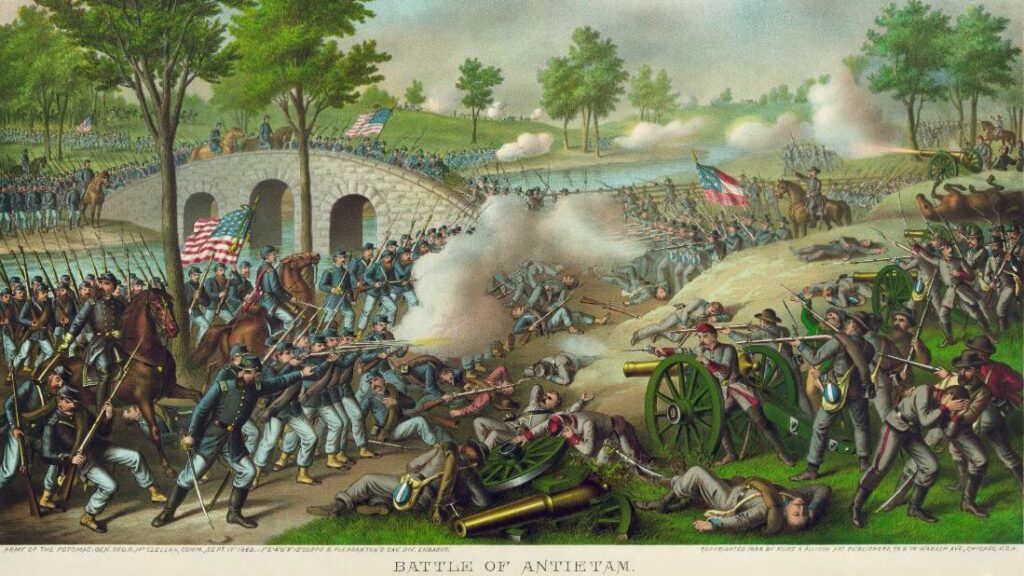
When the two armies finally collided on the fateful morning of September 17th near Sharpsburg, Maryland, the result was the single bloodiest day in American military history. Over 23,000 men fell in the cornfields and woods surrounding the town of Antietam.
Despite holding a two-to-one manpower advantage, McClellan’s performance that day encapsulated both his strengths and critical flaws as a commander.
His army fought tenaciously, at times breaching the Confederate defensive lines. Yet McClellan failed to capitalize on localized successes, committing his reserves piecemeal and squandering chances for a breakthrough.
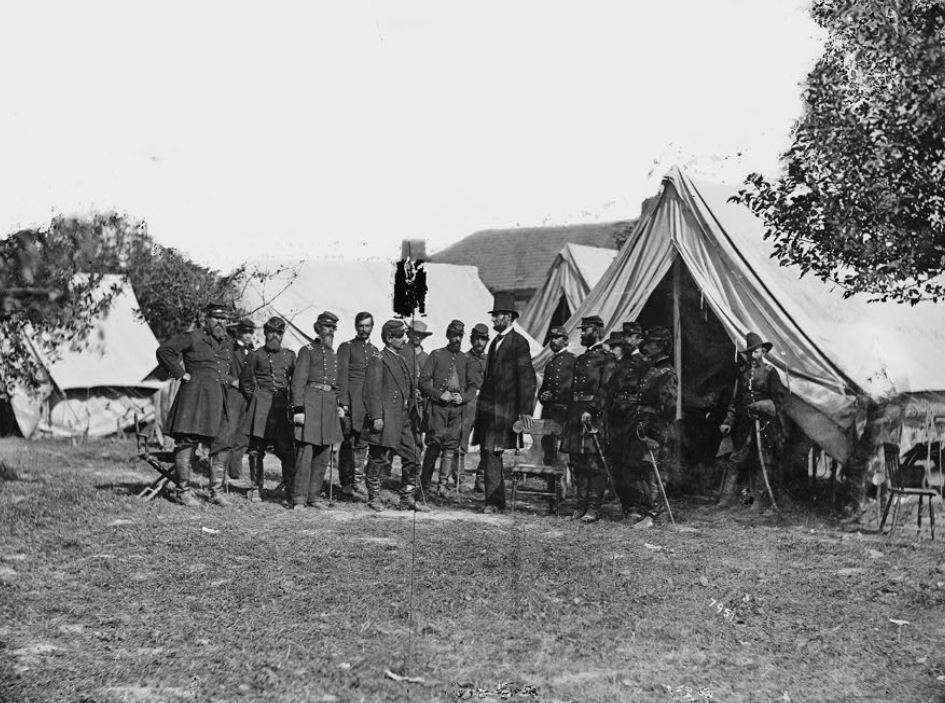
When the smoke cleared, Lee’s battered but unbroken army had slipped away during the night back across the Potomac.
The Declining Faith in McClellan and Ultimate Removal
Despite outnumbering the Confederates nearly 2-to-1 and fighting them to a tactical stalemate, McClellan’s actions (and inactions) in the aftermath allowed Lee’s battered forces to narrowly escape destruction.
The Failure to Commit Reserve Forces – One of McClellan’s biggest missteps was his reluctance to commit his reserve forces at Antietam when opportunities arose.
Incredibly, the two corps he held in reserve actually outnumbered Lee’s entire army on the field that day. Yet time and again, caution won out over aggression.
Poor Use of Cavalry Reconnaissance – Just as costly was McClellan’s failure to properly utilize his cavalry to track Lee’s movements after the battle. With no clear cavalry reconnaissance, McClellan remained in the dark about Lee’s intentions and dispositions. This left a critical window where the Confederates could rest, reorganize and slip away from the Antietam battlefield largely unimpeded.
Delays in Pursuing the Retreating Enemy – McClellan did not immediately initiate a pursuit of the retreating Confederate forces. He allowed Lee’s army over 24 hours to catch their breath and begin an orderly withdrawal back towards Virginia before the tentative pursuit finally began in earnest.
In trying to justify the lack of an aggressive offensive after Antietam, McClellan cited faulty intelligence about Confederate strength and his supply concerns. But these excuses could not obscure the reality that his overcaution and lack of audacity once again allowed a gravely wounded Lee to narrowly escape a potential knockout blow.
What should have been a clear-cut, war-altering victory over an outnumbered and reeling Confederate invasion force was squandered. Instead, the bloodletting would grind on for two and a half more years.
For McClellan’s critics, Antietam was the ultimate proof that he lacked the killer instinct to lead the Union armies to total victory over the Confederacy, regardless of his real talents.
It set the stage for his controversial sacking from command just weeks later.
5. General McClellan’s Victories
Despite criticism of George B. McClellan’s capabilities on the battlefield he did achieve a number of notable Civil War victories, particularly during the early stages of the war. These included:
- Rich Mountain (July 11, 1861) – One of the first significant Union victories in western Virginia, defeating Confederate forces under Robert E. Lee.
- Philippi (June 3, 1861) – A minor skirmish but an early success that helped secure western Virginia for the Union.
- Yorktown (April 5 – May 4, 1862) – During the Peninsula Campaign, McClellan’s forces captured the abandoned Confederate defenses at Yorktown after a lengthy siege.
- Williamsburg (May 5, 1862) – Following the Confederate withdrawal from Yorktown, McClellan’s troops won a costly battle against the rebel rearguard.
- South Mountain (September 14, 1862) – In his Maryland Campaign, McClellan’s forces captured the key mountain passes from the Confederates, positioning his army to confront Lee at Antietam.
- Antietam (September 17, 1862) – While a tactical draw, Antietam is considered a strategic Union victory that ended Lee’s invasion of Maryland. It was the single bloodiest day of the Civil War.
While achieving some notable early victories like Rich Mountain and Yorktown, McClellan’s later campaigns were marked by caution and an inability to fully defeat Confederate forces, drawing criticism from Lincoln and others for missed opportunities to deal decisive blows. Antietam was his final significant battle as commander of the Army of the Potomac.
6. The Enduring Legacy of “The Young Napoleon”
Despite his removal from command and the controversy surrounding his military decisions, McClellan’s legacy as a beloved commander endured long after the war.
His soldiers, many of whom remained fiercely loyal, continued to revere him as a capable leader who genuinely cared for their well-being.
In the decades that followed, McClellan’s image as “The Young Napoleon” persisted, with Civil War enthusiasts and historians debating his strengths and weaknesses.
While some view him as a skilled organizer and reformer who laid the groundwork for future Union success, others criticize his overcaution and missed opportunities on the battlefield.
Regardless of one’s perspective, the “Cult of McClellan” remains a fascinating aspect of the Civil War, highlighting the power of personality and public perception in shaping a military leader’s legacy.
McClellan’s ability to inspire devotion and loyalty, even in the face of setbacks and controversy, is a testament to his enduring impact on the soldiers who served under his command.
Further Reading
If you enjoyed this article, you may be interested to read about other American Civil War events, such as battles in Virginia, Maryland and North Carolina or more general American history.

